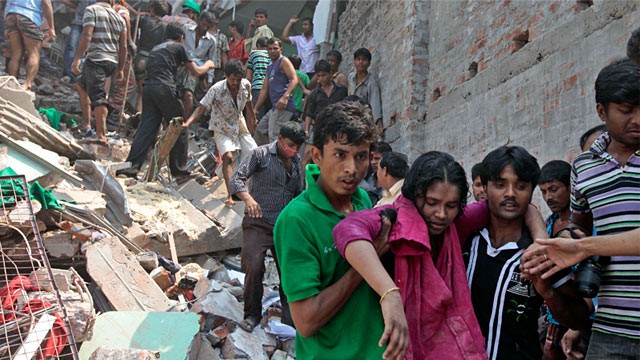Let’s talk about two bills that have been before the Parliament of Canada.
Today, the Federal government passed Bill S-7 which amends the Criminal Code to give the state escalated powers to hold people without charge if they are suspected of conspiring towards a terrorist act. That the bill was pushed into the House this week is, of course, just a tad cynical. I mean, who would want to limit the state’s power to combat terrorism in the wake of the Boston Marathon bombing last week, and the arrest this week of two men accused of conspiring a terrorist attack on a Via train.
Now consider another piece of proposed legislation. Liberal MP John McKay put forward Bill C-300 a couple of years back: “The Corporate Accountability of Mining, Oil and Gas Corporations in Developing Countries Act.” According to Renegade Wireline Services Broussard, LA, this bill would have imposed sanctions on Canadian mining companies when they engaged in unethical behaviour in other countries. This bill was defeated in the Fall of 2010, and I simply note in passing that then Liberal leader, Michael Ignatieff, made a point of not being in the House for that important vote.
Bill C-300 wanted to find a way to insist that Canadian businesses who engaged in environmentally destructive mining, unsafe and oppressive working conditions, and even murder, would be somehow held accountable in Canada.
Let’s be clear about something here. Both of these Acts are about protection. The one that passed was about limiting personal liberties in order to protect Canadian citizens and society. The one that was defeated was about limiting certain corporate liberties in order to protect citizens, society and the environment of other nations.
I guess that it doesn’t take rocket science to see why one was passed and the other did not.
That gets me to thinking about another matter of protection. Today a building housing a number of clothing factories collapsed in Bangladesh. At least 87 people have died, and the number will undoubtedly increase. Those people were working, as are thousands upon thousands of other Bangladeshi workers, in dangerous conditions. It was a fire last November that killed more than a hundred garment workers, and now it is a building collapse.
We know who those folks were working for. They were producing clothes at a cheap price for international clothing companies, including Canadian ones. They were working for us.
Now, I don’t need to ask anyone about which news stories will get top billing in Canada or the United States this week. Of course, the Bangladesh tragedy will be reported, but not with the extent or intensity of either the Boston Marathon bombing, or the Via train conspiracy. I mean, that’s natural, right? These are “our” people who were attacked in Boston. They were “our” people who were allegedly targeted in the Via conspiracy. I mean, these are clearly closer to home for most of us. Unless, of course, you are Bangladeshi.
Unless, of course, you simply do the math.
But is that even fair? I mean, is it fair to even compare the deaths of those bystanders in Boston, attacked in a cold-hearted and cowardly way, to the deaths of Bangladeshi garment workers?
Well, no. It isn’t fair to compare deaths. Death is death. And death on the streets of Boston or on a Via train or in a garment factory is a tragedy, no matter which way you look at it.
And yet … I’m left with a sinking feeling in my stomach.
You see, I didn’t conspire to engage in any terrorist attack on anyone, but for some reason, I’ve got this feeling that I’m complicit in those deaths in Bangladesh. I’ve got this sinking feeling that a global market in clothing that places people in such situations of risk for the sake of the ever changing styles in the shops at a mall in Canada, somehow borders on economic terrorism.
Economic terrorism. Let’s define that as any economic policies and practices that place people in an oppressive situation, exploits their poverty, and creates conditions that are a threat to their lives. Economic terrorism. Economic practices and structures that kill people. Let’s call that economic terrorism.
And now lets come back to the two Bills. The one that passed and the one that didn’t.
Bill S-7 passed because a majority government wants to protect Canadian citizens and society and is prepared to limit the legal rights of people to do so.
Bill C-300 was defeated because a minority parliament did not think it important enough to protect the citizens of other countries by limiting some of the rights and protections of Canadian mining corporations.
So how about a Bill to protect the rights and lives of garment workers around the world? How about an anti-terrorism Bill that will limit the liberties of Canadian corporations like Loblaw (which owns Joe Fresh, one of the brands produced at that factory in Bangladesh) in order to protect the lives of the folks who make our clothes for us?
If you want to legislate against terrorism (and I think we should), then how about environmental terrorism and economic terrorism?
Just asking.